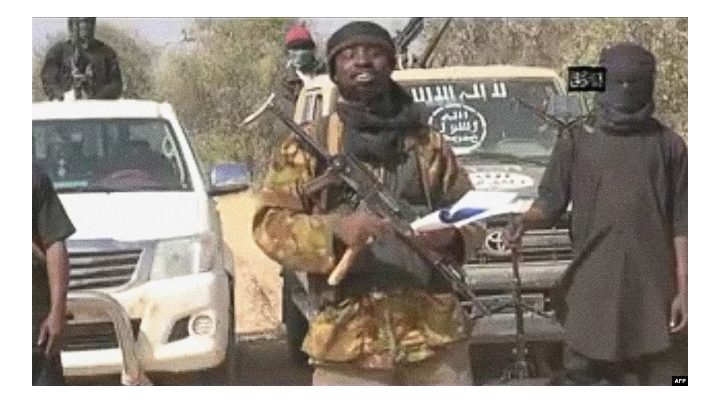
Nigeria Team Report: October 2025

Picture showing Shekau, former Boko Haram leader. Picture Courtesy: Boko Haram online media.
Violence and mass killings
Recent attacks attributed to Boko Haram continue to claim civilian lives in northeastern Nigeria, highlighting the group’s enduring presence and the state’s limited capacity to protect vulnerable communities. On October 20, 2025, militants invaded the Kwakwahu community in Madagali County, Adamawa State, where they abducted four residents and inflicted severe violence on a 25-year-old man, Yakubu Sunday, described as mentally unstable. According to local sources, Sunday was repeatedly stabbed and left for dead. The assault reportedly lasted for hours without intervention from security forces, reflecting the isolation of rural areas and the difficulties of maintaining safety across Adamawa and Borno States.
Residents later raised a ransom of ₦3.1 million (approximately US $2,100) for the release of the remaining hostages. The victims of these attacks are often unarmed farmers and villagers, targeted for ransom, fear, or control of territory. Eyewitnesses describe the attackers as heavily armed and familiar with the terrain, operating freely in forested and mountainous areas. These recurring assaults, marked by kidnappings, killings, and community terrorization, underline the continuing human cost of Nigeria’s prolonged insurgency. Civilians remain the principal victims, suffering loss of life, physical injury, and psychological trauma with little access to protection or justice.
U.S. Policy Responses to Nigeria’s Alleged Christian Genocide
The persecution of Christian minorities in Nigeria, although not new, has received increased international attention in recent months–particularly from the U.S. and its allies. Conservative voices within the United States, including President Donald Trump, has repeatedly levied allegations of the mass murder and genocide of Christians against the Nigerian government, which President Bola Tinubu has harshly denied. Given the severity of the allegations and stringency of the denials, it is worth examining both the historical and contemporary state of religious violence in Nigeria, as well as the U.S. policy response it is currently eliciting.
The intensity of religious violence in Nigeria is largely attributed to its demographic makeup and post-colonial history. Nigeria’s population of over 220 million people is almost evenly divided on religious lines, with Christian’s inhabiting the southern regions and Muslims the northern ones. As a result of migration around the turn-of-the century, Nigeria’s Middle Belt grew increasingly multi-ethnic and multi-religious, prompting grievances from both groups surrounding opportunity, politics, education, and culture. Such grievances grew violent when Hausa-Fulani herdsmen began to attack Christian enclaves in the Middle Belt, prompting Christian farmers to violently retaliate. Boko Haram, an Islamic terrorist group, emerged in the early 2000s, and has repeatedly terrorized both Christians and non-fundamentalist Muslims ever since. Thus, religious conflict in Nigeria bares significantly more nuance than is given credit for, with ethnic, cultural, and resource-based grievances, as well as religious motivations, contributing to the cross-cutting violence.
What then accounts for the increased emphasis on Christian persecution in U.S. policy responses? Among the Trump administration’s stated objectives is the rooting out of anti-Christian bias around the world; the situation in Nigeria, where Christians are being murdered in extremist violence, offers the president a politically beneficial case–resulting in the increased attention and interest it receives. Evangelical Christian groups in the United States have also become increasingly vocal about the issue, pressuring elected officials to take action. Among the most prominent advocates of this narrative is Texas Senator Ted Cruz, who recently introduced a resolution that would sanction Nigeria for its lack of response and label it as a Country of Particular Concern. In an escalation of such rhetoric, President Donald Trump accused the Nigerian government of being complicit in the killings and refused to rule out a military intervention in the country.
While any attention brought to issues of violence in Nigeria is welcome, it must come with the understanding that both Christian and Muslim populations in the country face genocidal threats. Genocide Watch recommends that any further U.S. policy responses acknowledge the cultural, ethno-religious, and socio-political complexities of the unrest, while promoting narratives of peace and reconciliation.